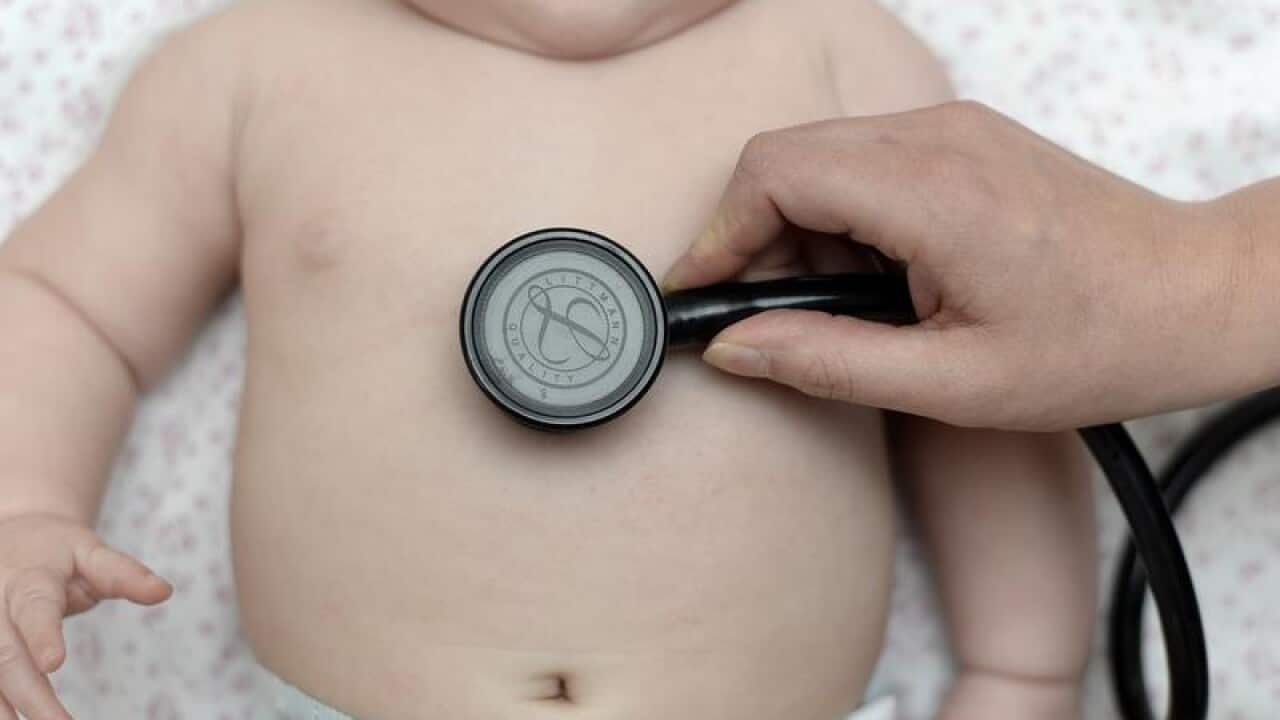Giving children the healthiest start to life will be the focus of an Australian research project as concerns grow about the impact the obesity crisis will have on future life expectancy.
The two-year study led by neonatologist Dr Adrienne Gordon will examine the impact of mothers' diet, body weight, stress and smoking during the first 1000 days of a child after conception.
"Obesity is one of the most serious global health crises of the 21st century and the greatest rise is among women of reproductive age," said Dr Gordon, of Sydney University's Charles Perkins Centre.
A growing body of evidence links a mother's poor diet during pregnancy to long-term health problems in children.
A report by researchers at the Murdoch Children's Research Institute (MCRI) found health disadvantage can be passed down through the generations at a cellular level.
The research review showed a child's development is significantly affected by the biological and physical environments they occupy during the first 1000 days of life.
Dr Tim Moore, a senior research fellow at the MCRI, said the new evidence was both "astonishing and scary".
"The first thousand days is a period of maximum developmental plasticity, that means it's the period during which as an organism we are most susceptible to change by environmental experiences, and those changes can have lifelong consequences," Dr Moore told AAP.
A US study recently published in the journal Frontiers in Endocrinology linked high-fat diets in pregnancy to mental health problems in offspring.
Animal studies at Oregon Health & Scientist University suggested a mother's high-fat diet alters the development of a child's brain and endocrine system and has a long-term impact on behaviour.
While more research is needed, the authors say the findings have important implications for the mental health of future generations.
The BABY1000 study needs to recruit 500 women who are less than 13 weeks pregnant or are planning a pregnancy, and their partners.
During their pregnancy and beyond, researchers will collect general information on lifestyle, nutrition, body composition, pregnancy weight gain and mental wellbeing.
A wide range of biological samples will also be collected.
The study will also involve a randomised controlled trial of more than 5000 women in multiple centres across NSW and ACT will be conducted to determine if weight loss before pregnancy improves pregnancy outcomes and infant health from birth to two years of age,
"Ultimately we want to raise awareness that preconception health is more important than currently understood and that intervening before pregnancy is key to improved outcomes for mother and baby," said Dr Nathalie Kizirian, project and research officer for the study.









